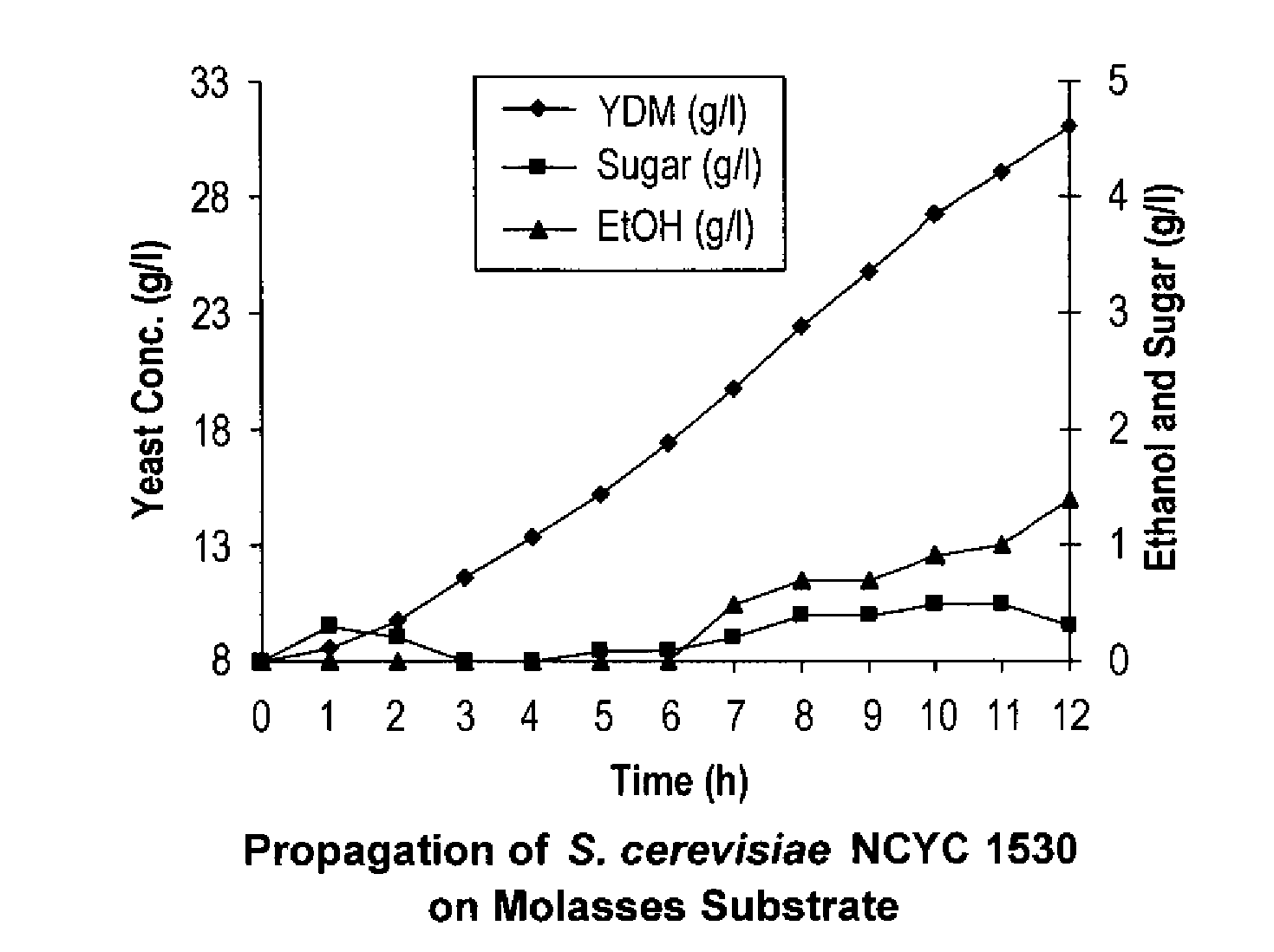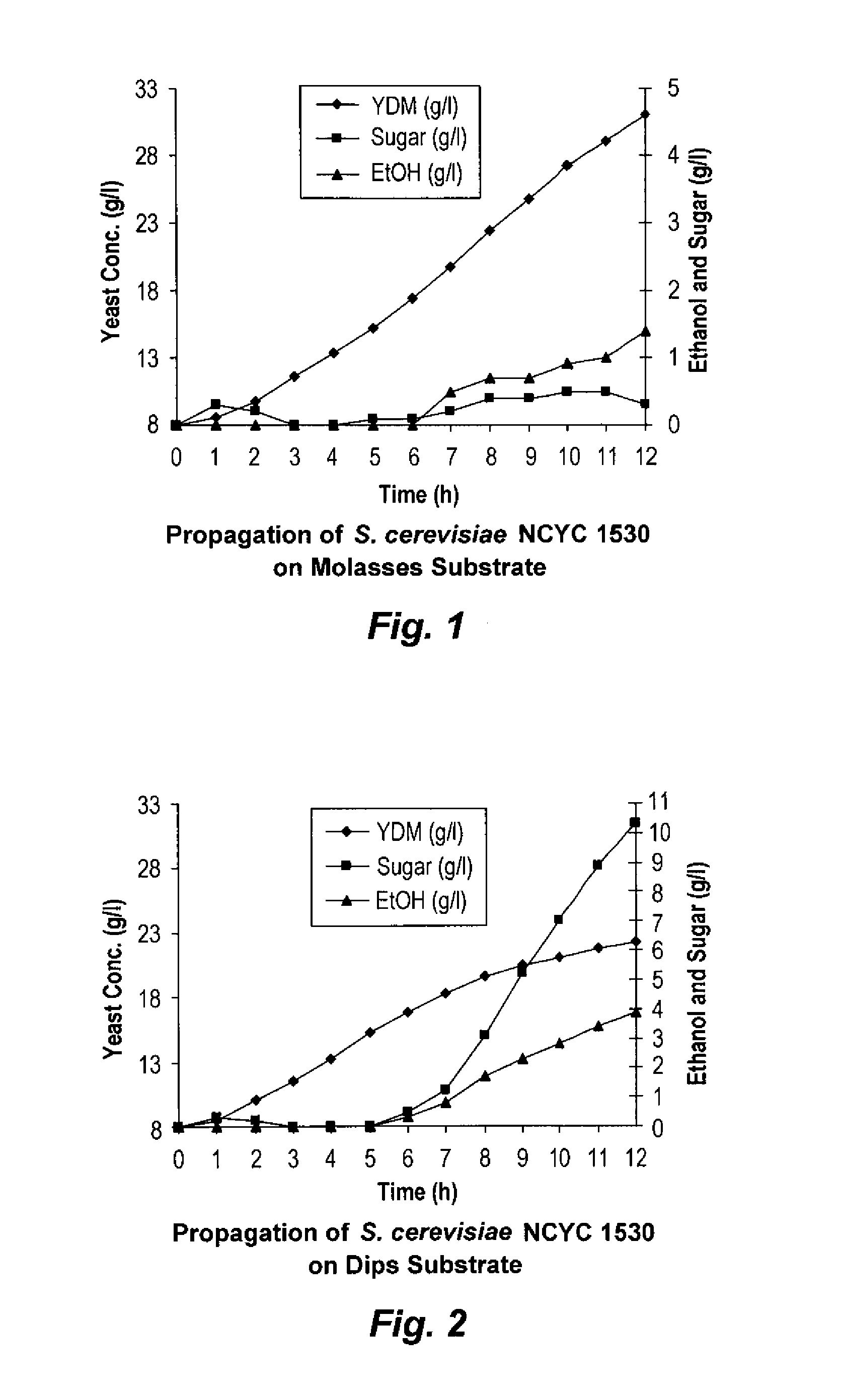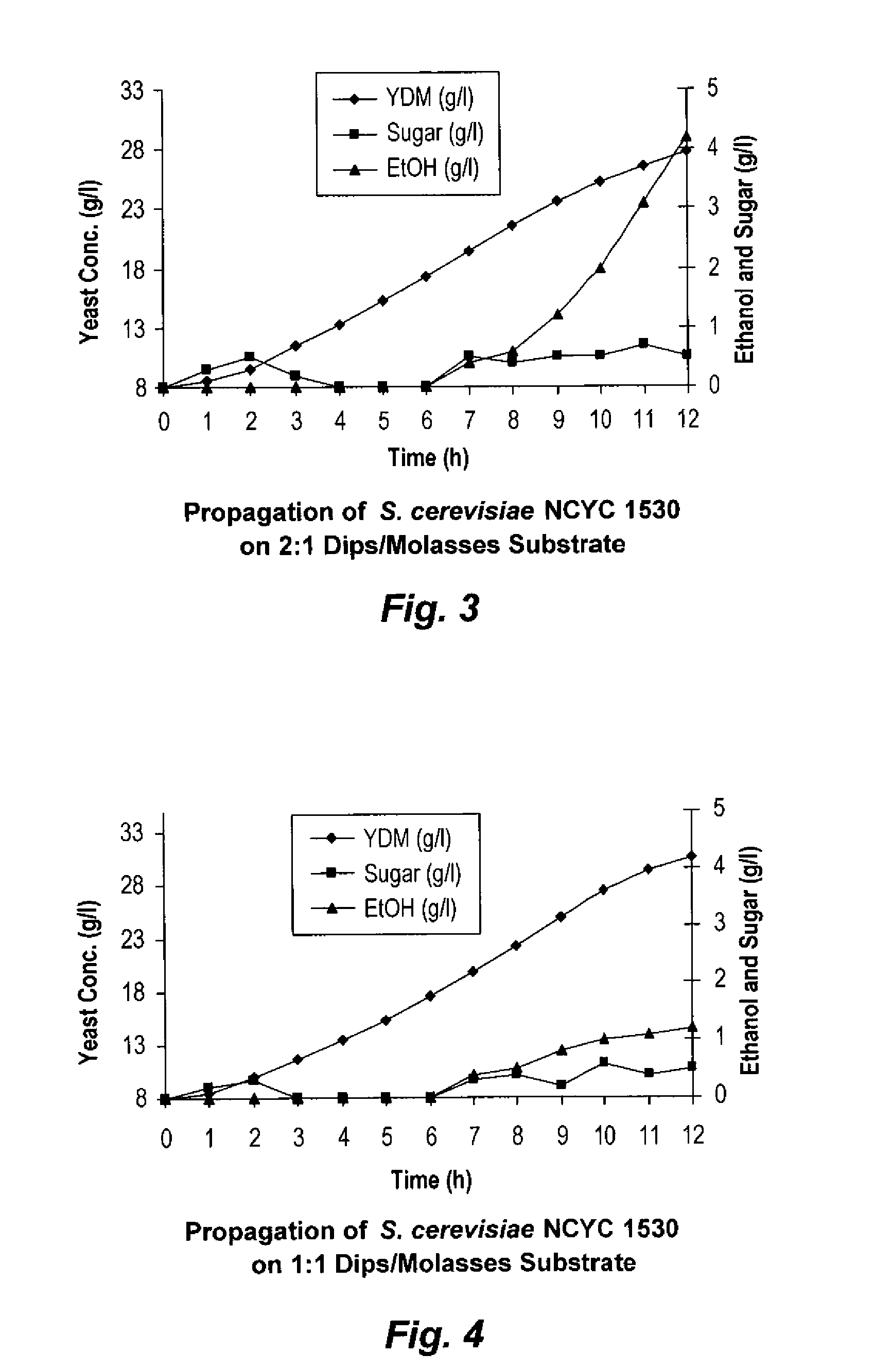Method of producing baker's yeast
- Summary
- Abstract
- Description
- Claims
- Application Information
AI Technical Summary
Benefits of technology
Problems solved by technology
Method used
Image
Examples
example 1
[0034]To try to remove the toxic compounds (the volatile organic acids) from Date syrup, and hence increase yield, the following treatment was applied. A treatment similar to one performed for molasses clarification in baker's yeast factories (for the removal of similar compounds) was performed as follows. Date syrup was diluted 1:3 with water, pH brought to 4.5 with sulfuric acid, and then it was boiled in an open container under continuous aeration for about 15 minutes. This treatment did not bring about the desirable effect, as can be seen from Table 4. This can be due to the fact that our treatment was performed in a simple pot, while the treatment of molasses is typically done in equipment specially designed for this purpose, with heating up to 140° C. under pressure followed by release of pressure and injection of air, which can result in a more effective evaporation of the volatile toxic compounds. Such equipment is not available to us now, but can be regarded as a possible s...
example 2
[0036]Since conventional treatment did not eliminate the toxins intrinsic to date syrup, the present inventors decided to try diluting the toxins in date syrup to a tolerable level by adding molasses to the date syrup substrate. Therefore, a comparative experiment was designed using four substrates: pure molasses, pure date syrup, a 1:1 date syrup / molasses dilution, and a 2:1 date syrup / molasses dilution.
[0037]Chemical analysis of Rezez Date syrup and cane molasses used in this study showed that the two substrates contained comparable amounts of nutrients needed by baker's yeast, as shown in Table 5. Both are good sources of carbon and energy, and contain enough amounts of potassium, magnesium and the essential vitamin biotin. The deficient nutrients are nitrogen and phosphorus in both substrates, sulfur and the essential vitamin m-Inositol in date syrup, and the essential vitamin pantothenic acid in molasses.
TABLE 5Nutrients required to produce 1 kg yeast dry matterContent inConten...
example 3
[0045]Arabic bread has a round shape and forms pockets because of the high baking temperatures that make the dry exterior skin to set and carbon dioxide and water vapor to expand. These gasses disperse till the pressure is sufficient enough to force separation of the lower and upper layers, a phenomenon referred to as pocket formation. It has been reported that white flour produced from hard wheat with intermediate strength and protein content of 10-12% gave high quality Arabic bread. This example aims to evaluate the effect of using Baker's yeast produced using date syrup as a substrate on quality characteristics of Arabic bread.
[0046]The flour used in the experiments was commercial local flour from hard wheat (Yecora Rojo variety), extraction rate of 80% and production year 2006, obtained in 10-kg paper packs (Grain Silos and Flour Mills Organization, Dammam, Saudi Arabia). The flour had 13.4% protein and 0.65% ash.
[0047]For flour, the falling number was determined according to th...
PUM
 Login to View More
Login to View More Abstract
Description
Claims
Application Information
 Login to View More
Login to View More - R&D
- Intellectual Property
- Life Sciences
- Materials
- Tech Scout
- Unparalleled Data Quality
- Higher Quality Content
- 60% Fewer Hallucinations
Browse by: Latest US Patents, China's latest patents, Technical Efficacy Thesaurus, Application Domain, Technology Topic, Popular Technical Reports.
© 2025 PatSnap. All rights reserved.Legal|Privacy policy|Modern Slavery Act Transparency Statement|Sitemap|About US| Contact US: help@patsnap.com



